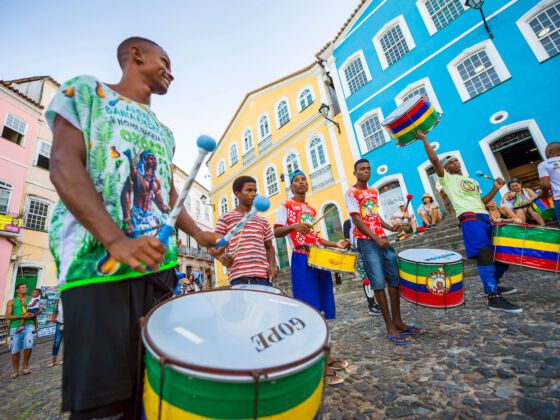It’s commonly said, in this country, that God is Brazilian. We recognize the beauties of our land, the energy of our people, and the magnificence of our culture. On the other hand, we love to complain about the disdainful way our forests are treated, the mischievous ways in which Brazilians sometimes behave, and the carelessness shown towards our cultural manifestations.
I’ve never heard anyone say this, but, if God is Brazilian, there are some reasons to believe that the Devil might also be. If that happens to be true, here are 7 of his possible birthplaces (and their respective sins):
